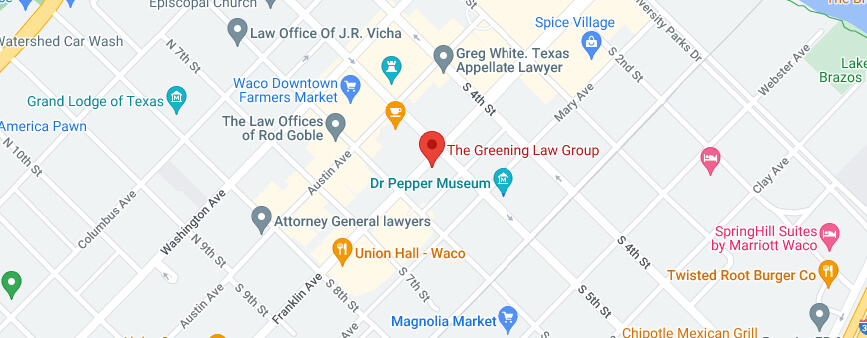Criminal Offenses at Music Festivals
Music festivals are all fun and games… until someone ends up in handcuffs. If that someone is you, it’s crucial to act now in finding the right attorney to represent you in your case. To protect your freedoms and your future, you need an aggressive, dedicated criminal defense attorney who is skilled in handling cases like yours. Look no further. We offer a free consultation with an attorney, during which you can discuss the facts of your case and determine the best course of action.
If you have been charged with a Class C misdemeanor, it may not always be the best decision to simply pay a fine and accept a guilty plea. It’s important that you fully understand what you are agreeing to and the consequences of that plea.
If you have an upcoming deadline to respond to the court on a criminal offense, don’t hesitate! Contact us today at (979) 596-4088 to schedule your consultation with an attorney.
Minor in Possession (MIP)
In this case, “possession” refers to care, custody, control, management. This means that alcohol doesn’t even need to be in the offender’s hand. They didn’t have to have bought it, and they don’t have to intend to be in possession of alcohol in order to be charged with an MIP. In fact, the prosecution does not have to prove that the individual even knew it was alcohol. An MIP is a Class C offense with statutory requirements under the Texas Alcoholic Beverage Commission (TABC).
Minor in Consumption (MIC)
In an MIC case, the defendant must have taken a step beyond possession and actually consumed alcohol. In this scenario, it doesn’t matter how much an offender drank– it could be anywhere from taking just one sip to consuming multiple drinks. The individual does not have to buy the drink, and prosecution doesn’t have to prove that they had any particular level of alcohol in their system. Similar to MIP, an MIC offense is also a Class C misdemeanor with statutory requirements under TABC.
Public Intoxication (PI)
Public Intoxication has no age limit– an offender can either be under or over the legal drinking age. In a PI case, the prosecution has to show that, through the introduction of alcohol or other substances, the individual posed a danger either to themselves or to others. Because this offense is not limited to alcohol, the prosecution does not have to show that the offender was over the legal age limit to consume alcohol, and does not have to prove that the offender had any certain amount of alcohol in their system at all.
Disorderly Conduct (DOC)
Disorderly conduct can be charged in a wide range of circumstances, but the most common offenses our office handles are these: fighting, language, gesture, and noise. In a DOC Fighting case, all it takes to constitute a criminal case is for individuals to be fighting one another in a public place.
For DOC Language, the requirements are not quite so specific; this offense is relevant if the offender is using “abusive, indecent, profane, or vulgar language in a public place, and the language by its very utterance tends to incite an immediate breach of the peace.” In this circumstance, police officers cannot be “offended,” but be careful; if you’re using strong language against a police officer, you may be getting arrested for something else, regardless of your language.
DOC Gesture occurs when an individual “makes an offensive gesture or display in a public place, and the gesture or display tends to incite an immediate breach of the peace.” A common example of a gesture that might incur a criminal charge for disorderly conduct is an offender giving someone the middle finger.
Lastly, an individual may be charged with DOC Noise if they are making “unreasonable noise in a public place other than a sport shooting range, as defined by Section 250.001, Local Government Code, or in or near a private residence that he has no right to occupy.” Examples of this offense include loud car noises and music from your party that disturbs the neighbors.
Though most DOC offenses will be charged as Class C misdemeanors, certain offenses involving firearms can be a Class B misdemeanor– which carries a higher punishment range than a Class C.
Expunction and Non-Disclosure
At the end of every criminal case, defendants often share one big question: “can I get this off my record?” For individuals that qualify, there are two options that may allow for the clearing of a criminal record: Expunction and Non-Disclosure.
An expunction is a court order removing any record of the case and the arrest from an individual’s criminal history. Once an expunction has been granted, the defendant can legally deny that the case ever existed. Only certain types of cases qualify for expunction:
- Class C misdemeanor offenses in which the defendant completed deferred adjudication probation.
- Cases in which there was:
- An acquittal at Jury Trial,
- A dismissal of the case, or
- A rejection of the case by the prosecution.
- Cases in which the defendant completed a Pre-Trial Diversion program.
Cases that do NOT qualify for expunction are:
- Pleas of guilty to Class B or Class A misdemeanors
- Pleas of guilty to felony offenses
Although these cases will not qualify for expunction, there is another option that may be available– a non-disclosure.
A non-disclosure is a court order that seals the case from the public. Something important to note in regards to non-disclosure orders: the record is only sealed, not destroyed. This means that certain agencies will still be able to see the case, even though the general public will not be able to access the records.
Cases that qualify for non-disclosure include:
- Class B misdemeanor offenses in which the defendant completed deferred adjudication probation.
- Class A misdemeanor offenses in which the defendant completed deferred adjudication probation.
- Felony offenses in which the defendant completed deferred adjudication probation.
- Some misdemeanor convictions
- Some DWI cases
Cases that do NOT qualify for non-disclosure include:
- Felony convictions
- Any offense with a finding of family violence
Eligibility for both expunction and non-disclosure is fact- and case-specific. Ask an attorney if your case qualifies.
If you’ve been arrested or charged with a criminal offense such as the ones listed above, give us a call! Our attorneys are diligent, prepared, and dedicated to helping you obtain the best outcome in your case.








